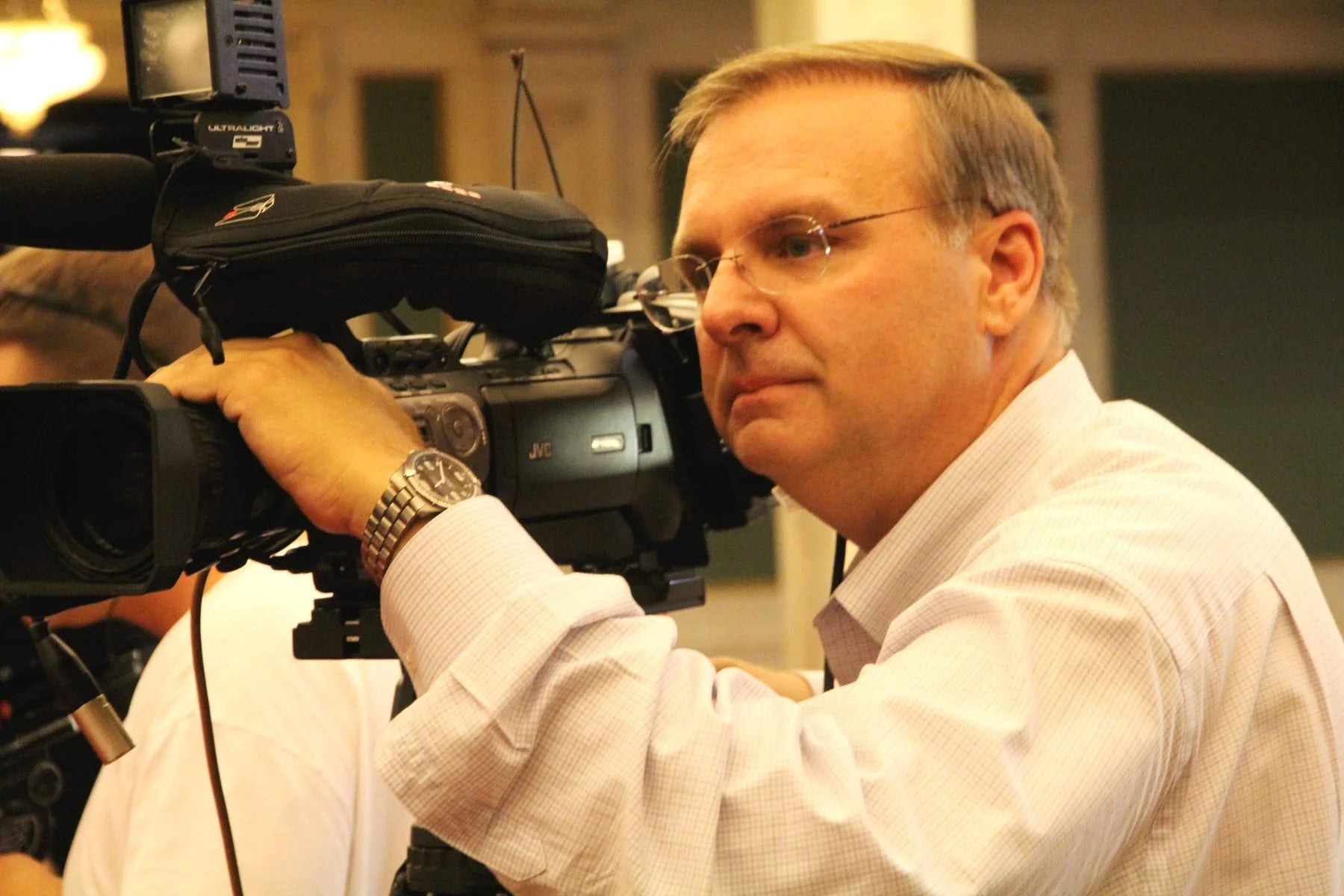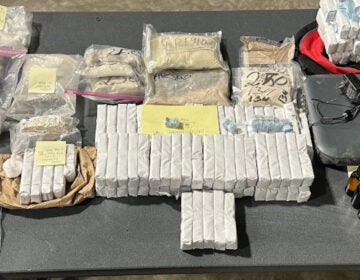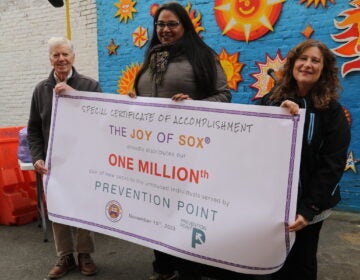Philly adds blue light bulbs in effort to contain opioid crisis
The blue light can make it difficult to see veins, a city official said, and discourage shooting up.

Anti-drug toolkit (Courtesy City of Philadelphia)
The city of Philadelphia has launched a new idea in its continuing efforts to rein in addiction and guide drug users toward treatment.
Police will be handing out blue light bulbs in the neighborhoods bordering a former encampment and open-air drug market along the railroad tracks in Kensington that Philadelphia and Conrail cleared out over the summer.
Installing a blue bulb in a porch light can discourage displaced addicts from shooting up on the front stoops of Kensington and Fairhill residents, city officials said Thursday.
“You can’t see your veins if there is a blue light, so you are unlikely to shoot up if there is a blue light,” said Lauren Hitt, a spokeswoman for Mayor Jim Kenney.
Philadelphia police, who have added bicycle patrols in those neighborhoods, are offering residents the light bulbs along with needle-removal kits to clean up after drug users who have spread into the surrounding blocks.
As the city aims to help residents deal with migrating addicts, it is also having some success in getting drug users in the area to enter treatment, Hitt said.
“We engaged 3,000 people over the summer and into the fall, and several hundred went into treatment and shelter,” she said. “But this crisis is so devastating, that all these new people have flooded into the area to get access to cheap heroin and fentanyl.”
The city will continue subsidizing services and adding new shelter beds in the area, she said.
WHYY is your source for fact-based, in-depth journalism and information. As a nonprofit organization, we rely on financial support from readers like you. Please give today.





